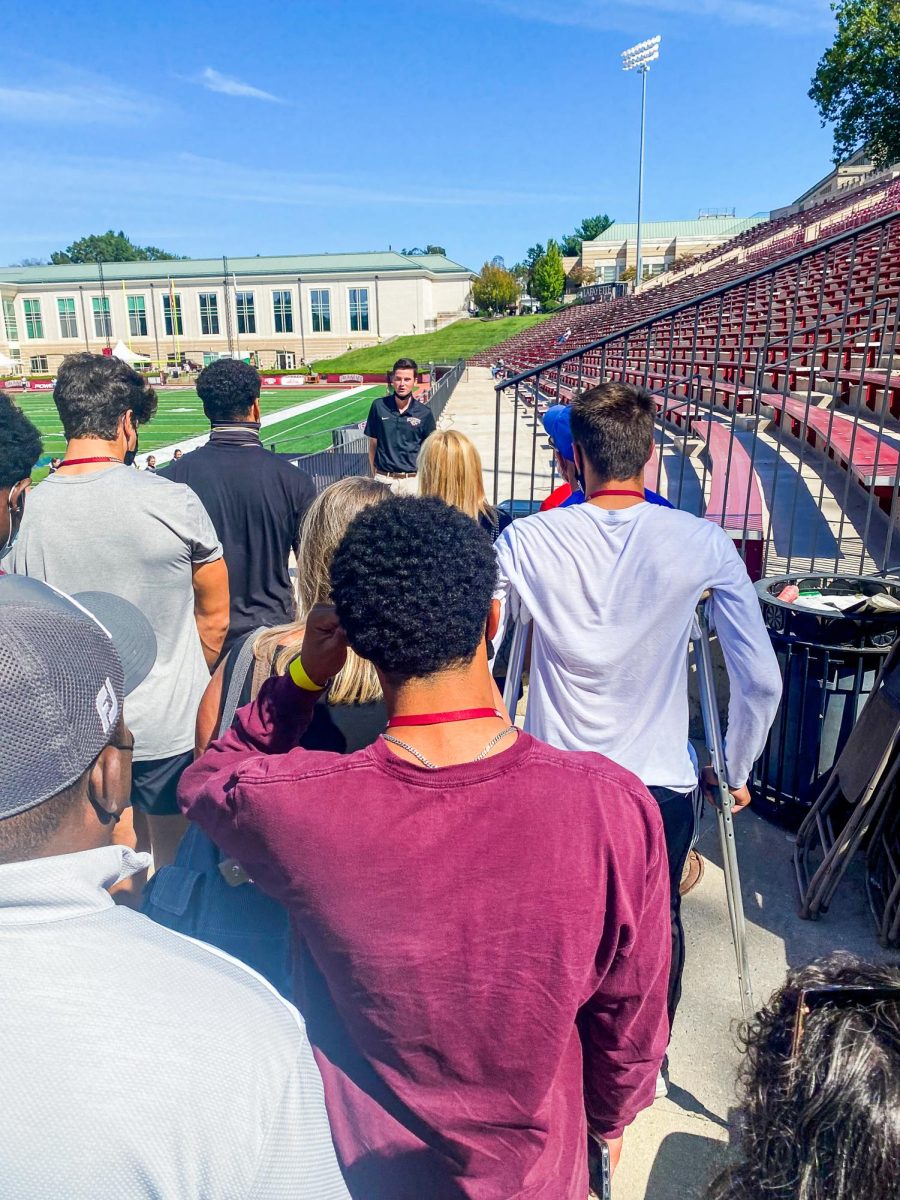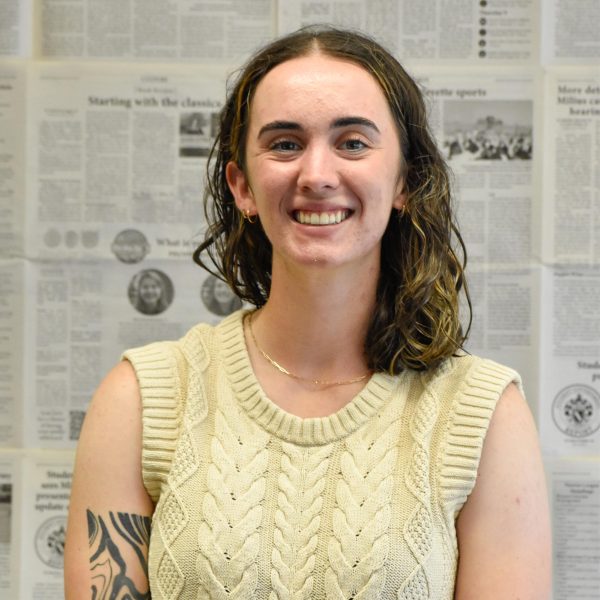The college decision process is difficult, but prospective athletes have to balance both athletic and academic aspirations to make their choice. Coaches try to present the best possible version of campus while hosting recruits, although their methods often deviate.
The NCAA has specific rules regarding the visits of prospective student-athletes, dividing them into two categories. On an official visit, the school pays for the prospect’s travel, lodging and food, while unofficial visits are not funded by the school.
There are also stringent rules coaches must adhere to when recruiting athletes. The NCAA restricts contact between coaches and recruits throughout the calendar year in order to “promote the well-being of college-bound student-athletes and ensure fairness among schools by defining certain periods during the year in which recruiting may or may not occur in a particular sport,” according to the NCAA Recruiting-Eligibility Center. The different periods are dead periods — during which no contact is allowed, quiet periods — during which no face-to-face contact is allowed, evaluation periods — during which coaches can watch recruits compete but cannot have face-to-face contact and contact periods — during which face-to-face contact is allowed.
While coaches follow recruitment calendars and guidelines, they retain a degree of freedom when structuring campus visits.
According to the NCAA Bylaws, prospective student-athletes are not allowed “more than two consecutive nights of lodging” during an official visit, meaning teams must conform to a 48-hour visit window.
Football hosts several official on-campus visits through December and January. According to Andrew Seumalo, the recruiting coordinator and outside linebackers coach, the team tries to host student-athletes before Early Signing Day on Dec. 20. Then, two more visits are hosted before National Signing Day on Feb. 7.
The team will be hosting its last official visit this weekend.
“We try to schedule our official visits when kids are on campus,” Seumalo said. “Obviously, the best time to show Lafayette off is when there [are] students so that they can get a clearer picture of what they’re getting into.”
The football program organizes an extensive program during the two-day window — recruits visit the Gateway Career Center, speak with coaches and medical staff and even enjoy go-karting as a group. Each recruit is assigned to a host player who shows them around campus at the end of each day. Recruits and their families also have the opportunity to talk to a panel of players without the coaching staff present.
Seumalo stressed the importance of creating a sense of belonging during the official visits.
“At the end of the day, while we may want a kid to think Lafayette is the best choice and what we have to offer them is the best choice, we want them to come to that conclusion as well and make them feel like this is a place that they can be successful not only on the football field but in the classroom and within the Lafayette community,” Seumalo said.
Official visits also serve an evaluative purpose for the team.
“No matter the talent, we don’t want to bring in the wrong guy that doesn’t fit with our identity and our culture,” Seumalo said.
However, not all coaches run their visits the same way. Head women’s soccer coach Mick Statham, for example, said that he primarily offers unofficial visits to recruits.
Unofficial visits are usually day trips during which the cost incurred by the athletic department cannot exceed $100, according to the NCAA Bylaws.
Statham said that he tries to create an “intimate” experience for prospective student-athletes by going out to lunch and showing them around campus.
“It’s about spending time with us and spending time with the family and making them feel welcome more so than anything else,” Statham said. “I think we do a good job of when people leave here, they feel that it’s a warm place.”
Statham typically only offers official visits in the fall.
“We usually use our official visits with our commits during the season so they can come and watch a game together,” Statham said. “They can be together around our team while they’re competing so they can take a peek behind the curtain.”
Field hockey head coach Jennifer Stone emphasized the importance of having recruits meet current players while experiencing what a typical day is like at Lafayette.
“I think knowing the team is a really, really important part to recruiting both for the team side as well as the recruit side just to get an idea of what the culture is like and what the values of the program are and the expectations and goals,” Stone said. “I think all of that is important because you’re putting together a team for the future.”























































































































